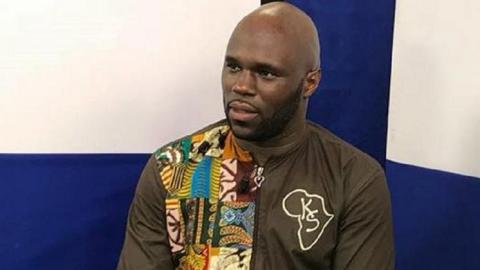Kemi Seba: The African hope of a Multipolar World
Primary tabs

Until a few years ago, Africa was at a standstill. After the first wave of decolonization in the 1960s, the new African regimes experimented with all the political ideologies of the so-called "modern" era. This process has led to the emergence of liberal, nationalist, communist or socialist societies in postcolonial countries.
Unfortunately, the rigorous application of these exogenous political paradigms has dramatically dragged African nations into inescapable decline, with each socio-political ideology dependent on a specific context of provenance. By imposing the principles of Western modernity on the masses in their daily life, although so far removed from these epistemological currents, the African elites have distorted and destroyed the profound identities of peoples, while paradoxically they were convinced that they were increasing and empowering them. The result was that they freed themselves from physical colonialism, but not from intellectual colonialism.
From a semantic, ontological and space-time point of view, Africa, through its complete alienation, has constituted, during centuries of oppression, a world isolated from the rest of the planet, if we consider that this continent is a plural and polycentric in its own right. A world apart, it should be noted, but whose mineral resources unfortunately still serve the rest of the predatory powers. However, it appears that the wheel has been gradually turning in the right direction in recent years. The political-cultural revolution of self-appropriation seems to be looming on the horizon in Africa. And if the process seems to have started, it has found, among others, a driving force in the person of Kemi Seba [1], a young, charismatic, peerless African leader, born and raised in France before returning to live in Africa, who has made the defense of this continent the mission of his life.
Kemi Seba is a man of his time. He echoes, in his speeches, the indignation of the proletarian strata of Africa and its diaspora. Her speeches about her are the soundtrack of a people who can no longer be anesthetized, whose resistance is like that of a young woman who has been stabbed so many times that she no longer feels the blows being inflicted on her.
In the space of the former French colonies, it was since the death of Lumumba and Sankara that young Africans in Africa were not seen arousing the enthusiasm of the masses and expressing the desire for total sovereignty of the people as Seba does by taking part in the struggle of the peoples of Africa. French-speaking for self-determination.
And if he manages to make African Dasein palpable on the international political scene, it is because in addition to his oratory gift useful for capturing crowds, or his fearlessness, he has, first of all, intuitively identified what is the sine qua non of the awakening of the its people.
The pan-African leader understood that the joint study of his people's history, geopolitics and metaphysics was the fundamental prerequisite for a true struggle for independence.
He has managed, with the strength of strategy and knowledge of African roads, to tame a concept still designed and conceived by and for the West, namely civil society. By merging the circumference of the latter (generally made up of breastfed NGOs from Europe or the United States) with the royal road, he brutally broke down barriers and disengaged a metapolitical space that did not belong to a rooted people, but in fact to stateless globalized elites.
He understood the ideological status of the three main modern political theories, liberalism, communism and nationalism.
Following this logic, he arrived, through a path of intellectual growth, at the Fourth Political Theory, founded on the search for the primordial tradition in its African meaning and on the conceptual mechanisms of political-civilization multipolarity.
The future of Africa and, more generally, of rooted peoples, is at stake here. In our opinion, and taking into account all these elements, at the beginning of the 21st century, Kemi Seba does not represent only an opportunity for emancipation for Africa. He represents hope for all the forces of multipolar resistance.
[1] Kémi Séba, born Stellio Gilles Robert Capo Chichi on December 9, 1981, is a Pan-African black writer, activist and political leader. Since April 2013 he has been a geopolitical analyst for several West African television stations and lectures on Pan-Africanism in many African universities.
